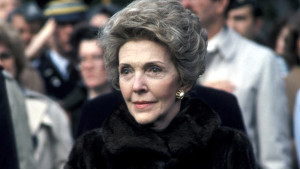I suppose you can wonder about Donald Trump’s motives for practically any decision he makes.
He does things solely to protect his “brand.” The president is more worried about “ratings” than doing something for the public good. He hates being criticized.
However, he did the right thing today by overriding a proposal to strip $17 million out of the federal budget for Special Olympics.
Education Secretary Betsy DeVos was pulled through the proverbial sausage grinder in the House this week when members of Congress questioned why she would recommend gutting a program that has become a staple — albeit a tiny one — of the federal government.
Today, the president said he “overrode my people” and put the money back into the budget. “Special Olympics will be funded,” he declared at the White House.
Good show, Mr. President.
In the grand scheme of the federal budget, Special Olympics’ total amounts to a tiny fraction of the $4.7 trillion the government will spend on foreign and domestic policy programs. However, it is a high-profile program that draws plenty of emotional support from celebrities, politicians of both parties and just plain folks who have members of their families with special needs.
Special Olympics was the creation of the late Eunice Kennedy Shriver and her husband, the late Sargent Shriver. It was founded as a way for Mrs. Shriver to honor her sister, Rosemary, a special-needs individual. It has grown into an international event, drawing athletes from more than 100 countries.
The United States has become a major participant in this event and has always set aside money from the federal budget to keep the program afloat.
Thus, it is good that the president interceded.

